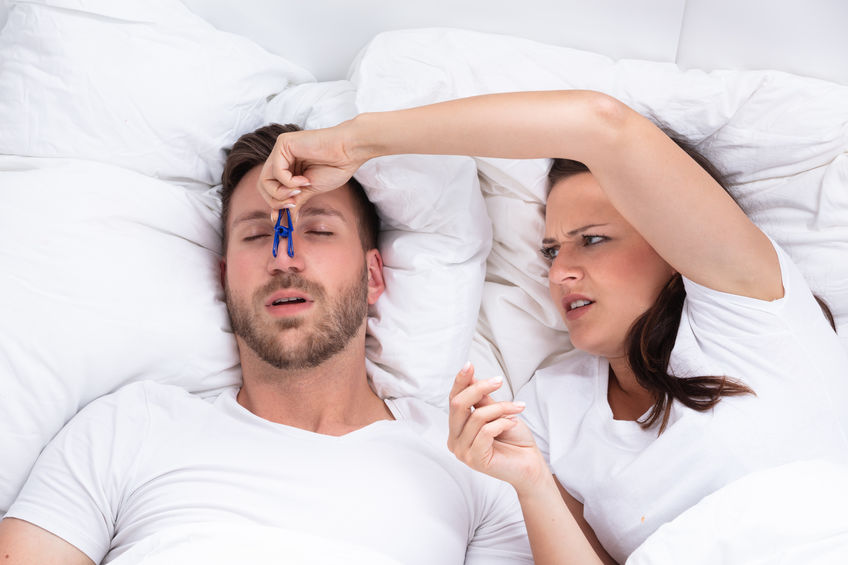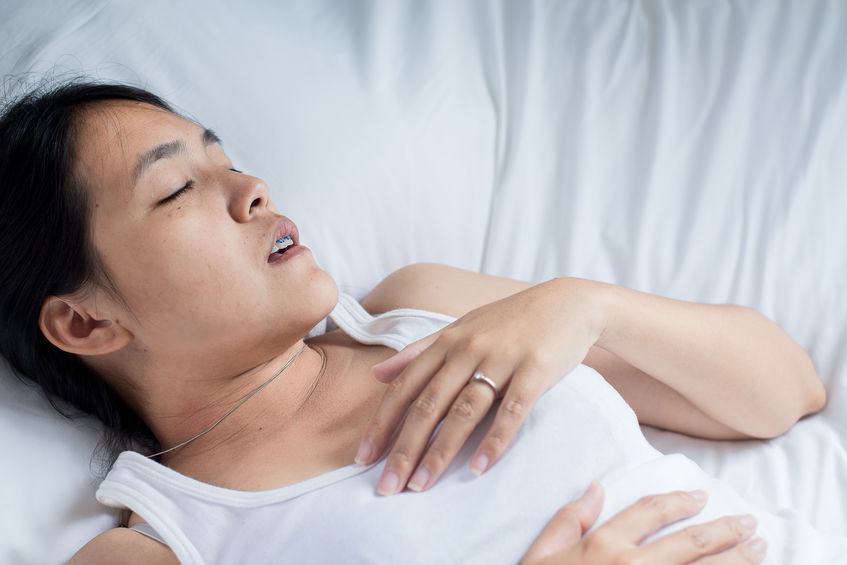Sleep Apnea and Snoring
Sleep apnea is a common and serious sleeping disorder that happens when your regular breathing is interrupted during sleep. Snoring is common among patients with sleep apnea, but not all snorers have sleep apnea.
- Obstructive Sleep Apnea
- Most Common Form
- Result of blocked airflow during sleep
- Other health factors, such as obesity, may contribute
- Central Sleep Apnea
- CSA is an issue with how the brain signals the breathing muscles.
- Although the airway is open, the brain doesn't send signals to the muscles to breathe.
- This type of sleep apnea can occur with conditions such as heart failure, brain tumors, brain infections, and stroke.

Sleep apnea can affect any one at any age, although men are more likely to develop the disorder. Some of the risk factors for sleep apnea are being over age 40, obesity/overweight, large tonsils or adenoids, large tongue (macroglossia), small jaw size (especially upper jaw), family history, allergies, sinus problems or nasal obstruction ( such as a deviated septum).

If sleep apnea is not treated it may cause health problems such as
- high blood pressure
- heart failure
- heart attack
- diabetes
- depression
- worsening of ADHD
- acid reflux
- sleep deprivation
- fatigue
- chronic tiredness
- inability to focus
Sleep apnea is treatable and some the treatment options are
- continuous positive air pressure
- adjusting sleep positions/habits
- dental appliances to support and open airway
- surgery